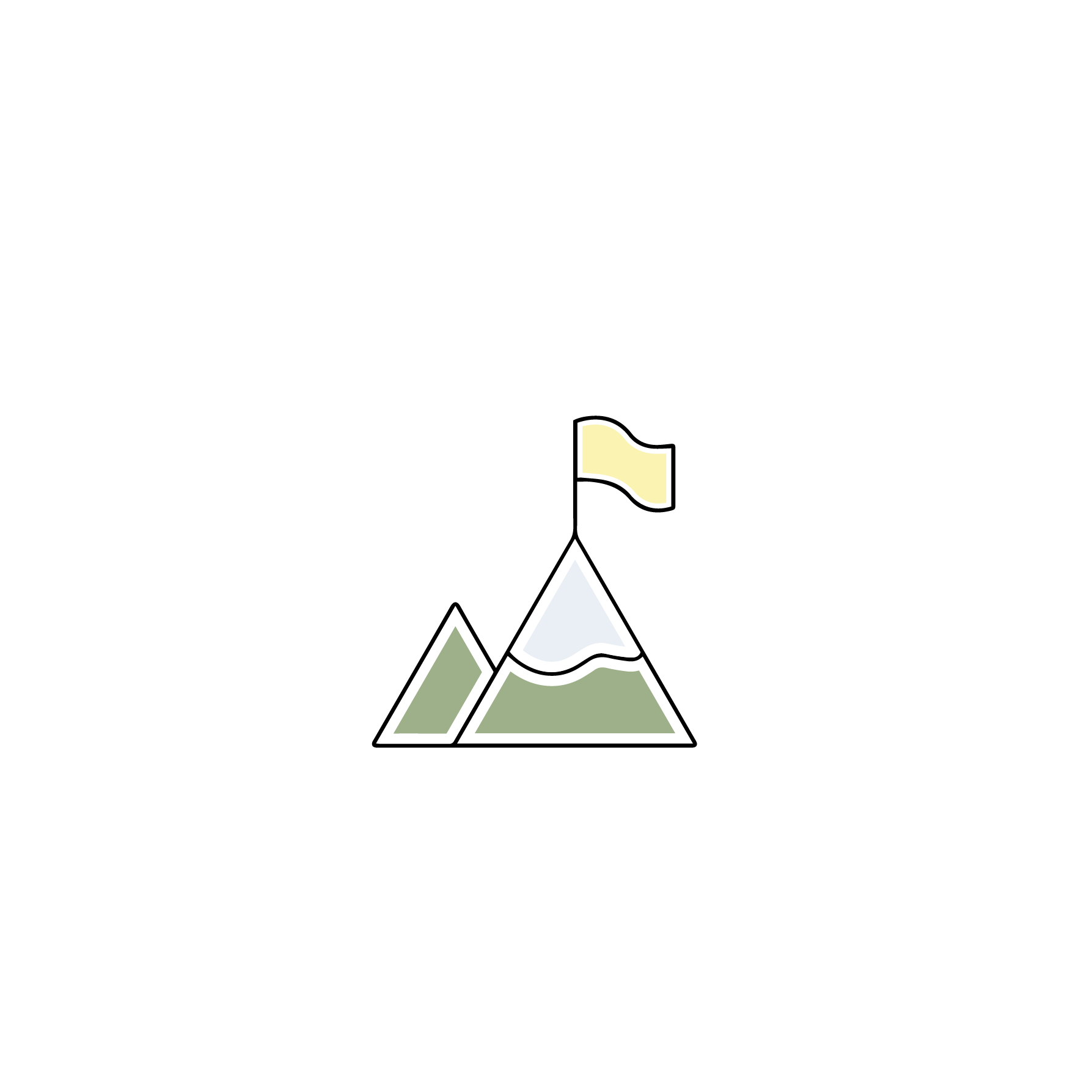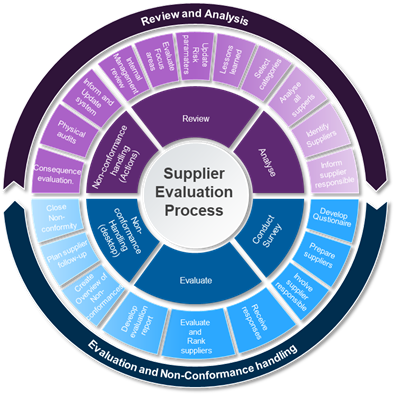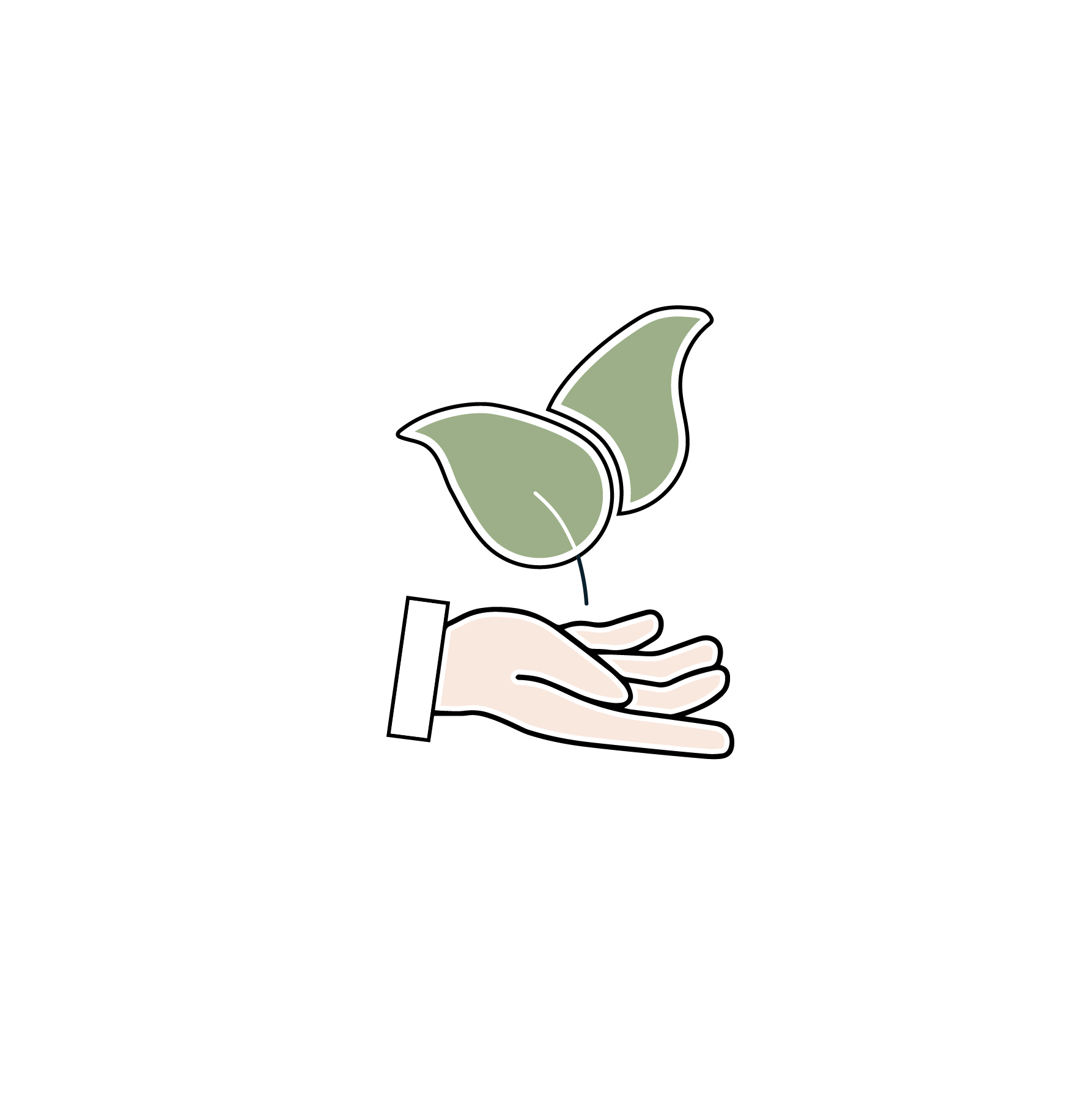-
SEARCH
Type your search in the field above

Lerøy seafood Group is involved in global business and working relationships with more than 6 000 direct suppliers worldwide. We set strict social and environmental requirements for ourselves as well as our suppliers and subcontractors.

Supplier management is essential in ensuring that suppliers comply with Lerøy's requirements over time and contribute to the development of the Group's products, operations and services. Suppliers have an impact on the Group's reputation, production and profitability.
The group have positive impacts through our procurement actvitities, in promoting positve outcome within social, economic and enviromental factors.
Through Lerøy evaluation system, code of conduct and audits; Lerøy contribute towards improving human rights, labour rights and environmental protection within the Group, and in relation to our suppliers and subcontractors.
By entering framework agreements, Lerøy supplier management lead to cost savings, increased efficiency, improved quality, and better risk management. In addition it can help improve sustainability and promote environmentally friendly practices throughout the supply chain, promote fair labor practices, ensure worker safety, and support local communities
The Group have major impact to create local value creation, Lerøy aims to make major contributions to local communities
Lerøy has not been involved in any negative impacts through its activites or business relationships related to supplier management.
The Group shall collaborate with suppliers to generate profitable, ethical, sustainable high-quality products and services.
In the Group, suppliers are an integral part of our operations and we have an obligation to ensure that our suppliers act according to the Group’s governing documents. By implementing a structured and standardized supplier management, we can verify that our suppliers adhere to our requirements and, if necessary, initiate corrective measures. As a buyer, we have an ethical responsibility to ensure that our suppliers act in accordance with relevant laws and regulations.
Suppliers, including subcontractors, are requested to adhere to the highest industry standards, and it is a prerequisite that laws and regulations are followed. With regards to foodstuff suppliers we require 100% food safety GFSI certification.
In the Group, supplier audits are a tool for developing cooperation and ensuring continuous improvement between the companies in the Group and our suppliers, and a requirement to assure compliance.
As one of the largest employers along the coast of Norway, the Group has local suppliers that are valuable contributors to our operations. We highly value the diversity in our supply chain and work continuously to develop a local presence near our operations.
As a responsible buyer, the Group has developed a risk-based approach to supplier management to assure that our supply chains are sustainable and robust. We are influenced by internal and external factors ranging from biodiversity to political risks, and we therefore analyse and focus on understanding those factors.
Throughout the year, we have meetings, email correspondence and conversations with various stakeholders where we have presentations and discussions related to the areas where we have or can have a potential impact. We also attend conferences and meetings where we meet and discuss.
Through this form of dialogue, we gain insight into what stakeholders are concerned with and feedback on what they think about the way we work, measures we have initiated and what they think we should focus on going forward. Through various forms of benchmark surveys, we also receive feedback on what stakeholders think about our measures and their implementation
The Norwegian transparency Act is a new act, adopted by the Norwegian Government, which entered into force on 1 July 2022. The act aims to promote companies' respect for basic human rights and decent working conditions, and ensure the public's access to information. Lerøy supplier management is complying with this act.
Lerøy have launched a contact page in our webpages with information about the act and how stakeholder can contact us. The act has made it easier for stakeholders how to get information related supplier management.
The Group has organised its supply chain by establishing a centralised purchasing department that collaborates closely with the purchasing departments in the subsidiaries. The Group's supply chain is based on the Group's value chain. Due to the value chain's complexity, different needs are identified for the three main segments; Farming, Wild Catch and VAP, Sales & Distribution. Farming contributes to the largest share of purchases.
The supply chain mainly comprises Norwegian suppliers but, with the inclusion of subcontractors, has a global reach. The suppliers are diversified between suppliers to farming; feed ingredients, nets, boats, machines and equipment for salmon and trout farming, for wild catch; Boats, machinery and equipment for catching cod, haddock, saithe and shrimp and for VAP, Sales and Distribution; machines, equipment, packaging and input factors for the production of products for the market. It is estimated that the Group's procurements total approx. NOK 16 billion per year.
The Group aims to make major contributions to local communities, and makes use of local suppliers in the areas where we have operations. In Norway, which is Lerøy's most important operating location, 80% of purchases are made locally. By supporting local suppliers, we contribute to the economic development of the local community.
Lerøy launched a supplier web site in 2022, where supplier can register and get information in Lerøy requirements available via the link below.
To be able to screen all our suppliers, risk evaluate suppliers and to take responsibility for working with continuous improvement with our suppliers, the Group has developed a supply chain management system.
The system follow the Lerøy supply chain risk management wheel which consist of a review and analysis part in addition to an evaluation and non-conformance handling part.

The Group has risk evaluated all suppliers and identified them in a specific supplier category, star(*) indicate increased risk category in regards social and environmental criteria.
Suppliers are assessed according to the following materiality criteria
After risk assessment and categorisation the supplier need to describe their routines and practises within the flowing topics:
Based on the information provided on the topics the suppliers can obtain maximum 100 points. Based on the score the suppliers are risk categorized as Green (Low risk), Orange (medium risk) and red (high risk)
Suppliers identified as high risk, not fulfilling the requirements are considered excluded or are required to implement corrective actions according to the Lerøy Quality Management system.
Lerøy has established a supplier evaluation system for implementation throughout the Group in 2022. Lerøy has also signed a number of framework agreements with strategic suppliers.
The Group shall develop its strategic suppliers by entering into strategic collaboration/framework agreements at Group level, in order to ensure continuous improvement and optimisation of the supply chain over time.
Target is to screen all new suppliers in the system using all criteria including environmental and social criteria. In 2022 all new suppliers received a request from the supplier evaluation system. The response rate was 14 % screened using environmental and social criteria. We are working on increasing the response rate, among other things by informing the recipients in advance and to define new supplier.
Dependent on the supplier score result the suppliers are followed up with meetings or physical audits, suppliers not fulfilling the requirements are considered excluded or are required to implement corrective actions according to the Lerøy Quality Management system.

|
|
Target |
2022 |
2021 |
2020 |
2019 |
|
Share of new suppliers that were screened using environmental criteria |
100% |
14 % |
11,5% |
n/a |
n/a |
|
Percentage of new suppliers that were screened using Social criteria |
100% |
14 % |
11,5% |
n/a |
n/a |